The global economy is a complex web of interconnectedness, where economic policies and decisions made by governments around the world can have a direct impact on your financial well-being. From trade agreements to sanctions and regulations, global economic policies shape the landscape in which businesses operate and individuals thrive.
Recent events, such as the COVID-19 pandemic and geopolitical conflicts, have brought global economic policies to the forefront. The Biden Administration, along with a coalition of countries, has implemented financial sanctions and export controls on Russia in response to the ongoing war in Ukraine. These policy changes have ripple effects, influencing commodity prices, inflation rates, and trade dynamics on a global scale.
Key Takeaways:
- Global economic policies have a direct impact on individual finances.
- The Biden Administration and other countries have imposed financial sanctions on Russia due to the war in Ukraine.
- These policy changes affect commodity prices, inflation rates, and trade dynamics.
- Understanding global economic policies is crucial for navigating the financial landscape.
- Stay informed about policy changes to make informed financial decisions.
The Significance of International Cooperation in a Changing Global Outlook
International cooperation plays a vital role in addressing global issues and shaping the global economy. The recent conflict between Russia and Ukraine has underscored the power of collective action and the importance of multilateral cooperation. The swift and sweeping sanctions imposed by the United States and its allies have demonstrated the impact of international collaboration in degrading Russia’s ability to prosecute the war and project power.
President Biden’s multilateral approach, involving the G7 and the European Union, has showcased a commitment to opposing aggression and upholding a rules-based global order. The cooperation between experts at Treasury, law enforcement, and finance ministry leaders has further enhanced the effectiveness of sanctions and enforcement measures.
“Collective action is key in addressing global challenges and promoting global stability. The collaboration between countries and international institutions showcases a commitment to upholding peace and security in the global economy.” – International Policy Expert
International cooperation not only addresses immediate conflicts but also has far-reaching implications for global stability. The interconnectedness of economic issues and national interest, including national security, highlights the need for collaborative efforts to navigate the changing global outlook. The role of China in the international community has also come into focus, with its response to the conflict between Russia and Ukraine shaping its future relationship with the global community.
The Significance of International Cooperation in Addressing Global Challenges
As the global economy faces various challenges, including trade and competitiveness, greater international cooperation is required. Efforts to modernize existing institutions, such as the International Monetary Fund (IMF) and multilateral development banks, are crucial to effectively address the risks of the 21st century. Trust, cooperation, and a commitment to multilateral trade liberalization are essential in providing the global public goods necessary for global stability.
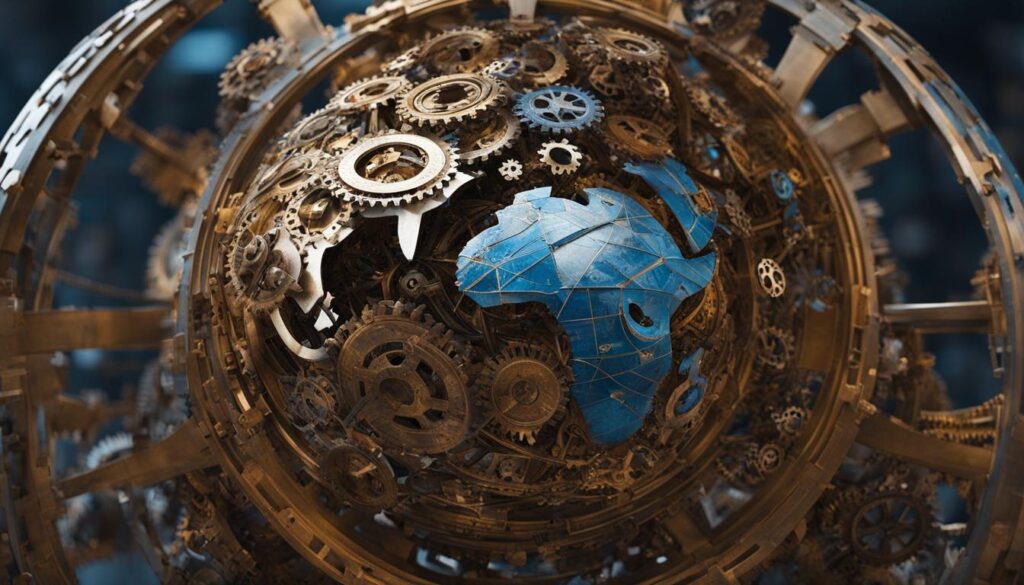
- Enhanced international cooperation
- Modernization of global institutions
- Commitment to multilateral trade liberalization
The path forward requires finding a balance between national interests and global well-being, as the world strives for a more stable and peaceful future.
Mitigating the Economic Impacts of Russia’s War
The Russian invasion of Ukraine has had direct impacts on the global economy, particularly in the contraction of Ukrainian and Russian exports, including energy, food, fertilizer, and other commodities. The international community has imposed severe sanctions on Russia, resulting in trade and investment finance restrictions. These sanctions have led to higher commodity prices, posing threats to energy and food security, trade flows, and external balances of many countries. Efforts are being made to support developing countries in mitigating these economic shocks, especially as they continue to recover from the COVID-19 pandemic. Discussion and potential solutions are being explored to address the impact on food prices and supply, particularly for vulnerable populations.
Mitigating the Economic Impacts of Russia’s War
As the global economy grapples with the consequences of Russia’s war on Ukraine, the implications on trade flows and economic stability become increasingly apparent. One of the key challenges lies in the contraction of Ukrainian and Russian exports, impacting essential sectors such as energy, food, and fertilizer. The international community has responded with severe sanctions, restricting trade and investment finance, which has resulted in higher commodity prices and posed threats to energy and food security.
Developing countries, in particular, are faced with the daunting task of mitigating these economic shocks, compounded by the ongoing recovery efforts from the COVID-19 pandemic. Efforts are underway to explore potential solutions and support mechanisms to alleviate the impact on vulnerable populations, particularly in terms of food prices and supply.
| Impact on the Global Economy | Challenges Faced | Potential Solutions |
|---|---|---|
| Higher commodity prices | Energy and food security | Support mechanisms for vulnerable populations |
| Trade flow disruptions | Economic stability | Exploring alternative trade routes and partnerships |
| External trade imbalances | Recovery from COVID-19 pandemic | Financial assistance and capacity-building initiatives |
The global community recognizes the urgent need to address the economic impacts of Russia’s war and is actively engaging in discussions and collaborations to find solutions. By prioritizing food security, exploring alternative trade routes, and providing support to developing nations, it is possible to alleviate the strain on the global economy and mitigate the long-term consequences of this conflict.
Efforts are also being made to ensure a comprehensive approach that takes into account the interconnected nature of the global economy and the varied challenges faced by different regions. This includes ongoing dialogue on potential trade integration measures and financial assistance programs to bolster recovery efforts and enhance resilience.
The Role of China in the Global Economy
China’s economic integration has positioned it as a key player in the global community. With its vast population, technological advancements, and expanding influence, China has become a major force in the international economic landscape. As the world’s second-largest economy, its policies and actions have far-reaching implications for global trade, investment, and economic stability.
China’s economic integration is evident through its extensive network of trade agreements and initiatives. The Belt and Road Initiative (BRI), for example, aims to enhance connectivity and cooperation between China and countries across Asia, Europe, Africa, and the Middle East. This ambitious infrastructure project has the potential to reshape global trade routes and promote economic growth in participating nations. China’s active participation in international organizations such as the World Trade Organization (WTO) and its growing influence in regional trade blocs further demonstrate its commitment to economic integration.
China’s economic prowess has not been without controversy. Concerns over intellectual property rights, market access barriers, and state subsidies have led to trade disputes with major economies like the United States and the European Union. However, China’s role in the global economy extends beyond trade. Its investment in emerging markets, development assistance programs, and participation in global governance initiatives contribute to shaping the future of the global economic order.
China’s Economic Integration: A Double-Edged Sword
China’s economic integration brings both opportunities and challenges. On one hand, its growing consumer market presents vast potential for companies seeking to expand their global reach. Access to China’s market can significantly boost revenue for multinational corporations and stimulate economic growth. On the other hand, concerns about unfair competition, market distortions, and the impact on domestic industries have fueled calls for greater scrutiny and regulation.
The table below highlights some key aspects of China’s economic integration:
| Aspect | Impact |
|---|---|
| Trade | China’s role as the world’s largest exporter and importer has significant implications for global supply chains and trade flows. |
| Investment | China’s outbound investment has grown rapidly, making it a major player in global mergers and acquisitions and infrastructure projects. |
| Technology | China’s advancements in technology, such as 5G and artificial intelligence, have the potential to reshape industries and create new opportunities. |
| Finance | China’s role in international finance, including its currency, the renminbi, and its growing presence in global financial institutions, has implications for global economic stability. |
China’s economic integration will continue to shape the global economy and influence the dynamics of international trade and investment. As China strives for greater global leadership, finding a balance between economic cooperation and addressing concerns surrounding fair competition, intellectual property rights, and market access will be crucial for fostering a sustainable and mutually beneficial global economic order.
The Need for Greater Cooperation and Modernization of Institutions
As the global economy faces various challenges, including trade integration and competitiveness, it has become increasingly evident that greater cooperation and modernization of existing institutions are crucial. In order to achieve free and secure trade, it is essential to build on economic integration and harmonize approaches to protecting data privacy. Efforts to enforce trade policies and practices, both multilaterally and bilaterally, are necessary to ensure a level playing field.
Challenges and Solutions
The modernization of institutions, such as the International Monetary Fund (IMF) and the multilateral development banks, is imperative in addressing the 21st-century challenges and risks. These institutions need to adapt to the changing global landscape and provide effective support to countries in need. Additionally, collaboration between governments, businesses, and civil society is vital in developing innovative solutions to global challenges.
One example of the need for greater cooperation and modernization is the issue of climate change. As countries strive to mitigate the effects of climate change and transition to a low-carbon economy, international institutions must play a crucial role in supporting and coordinating these efforts. This includes providing financial resources, facilitating technology transfer, and fostering knowledge sharing.
Achieving Global Resilience
Furthermore, the COVID-19 pandemic has highlighted the importance of global cooperation in addressing health crises. The development and distribution of vaccines, as well as the sharing of scientific knowledge and best practices, have been essential in managing the impact of the pandemic. Strengthening international institutions and mechanisms for disease surveillance and response is key to ensuring a more resilient global health system.
By fostering greater cooperation and modernizing institutions, the global community can effectively tackle the challenges of trade integration, modernization, and other global issues. It is crucial for governments, businesses, and individuals to work together towards a more inclusive and sustainable future.
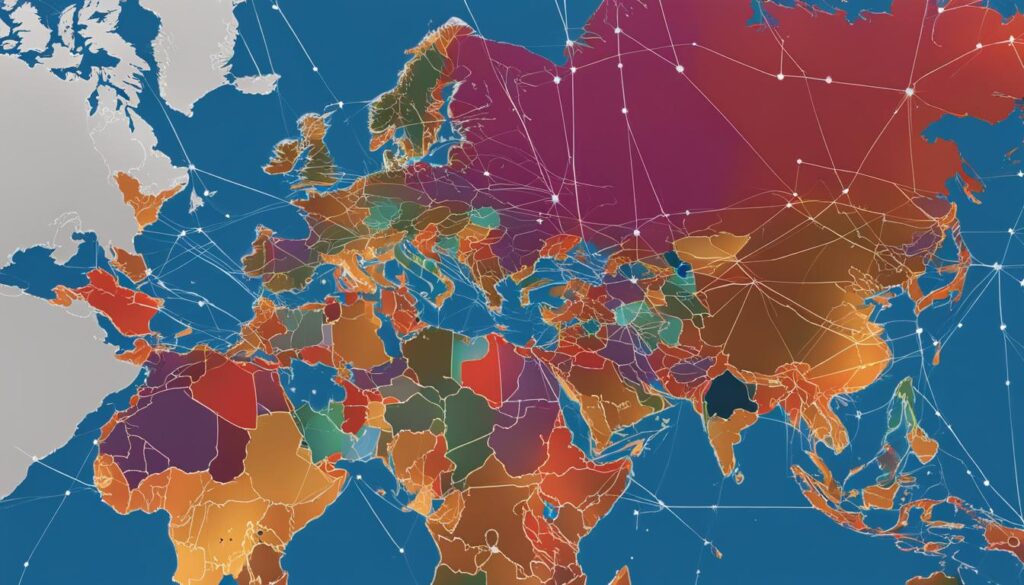
The Impact of U.S. Economic Engagement with the World
The United States has long played a significant role as a global economic leader, driving productivity growth and shaping the forces of globalization. Through its open borders and low tariffs, the U.S. has facilitated the flow of goods and services, contributing to a more interconnected global economy. This engagement has allowed for the exchange of ideas, resources, and technologies, leading to increased efficiencies and economic growth worldwide.
By embracing globalization, the United States has benefited from access to a wide range of products at competitive prices, keeping inflation in check and providing consumers with more choices. American businesses have also expanded their reach, tapping into new markets and finding opportunities for growth. This economic engagement has fostered innovation and spurred technological advancements, driving productivity gains that have led to higher living standards for many.
However, it is important to acknowledge that globalization has not been without its challenges. The increasing interconnectedness of economies has exposed vulnerabilities, as seen during global economic crises. Critics of U.S. economic engagement argue that it has led to job losses and growing income inequality domestically. The impact of trade imbalances and currency fluctuations has also sparked debates about fair trade practices and the need for greater regulatory oversight.
“Globalization has brought tremendous benefits, but it has also created disruptions. We need to address the concerns of those who have been left behind and ensure that the benefits are shared more broadly.” – Federal Reserve Chair Jerome Powell
In an ever-changing global landscape, it is essential for the United States to navigate the challenges and seize the opportunities presented by economic engagement. By maintaining a balance between promoting economic growth and addressing the concerns of its citizens, the U.S. can continue to lead on the global stage and contribute to a more prosperous and inclusive world.
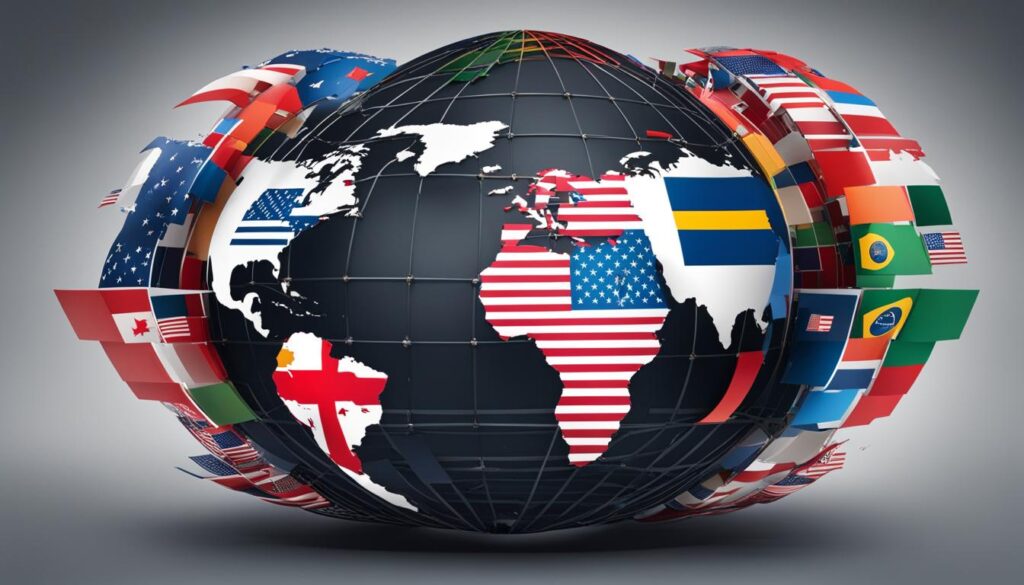
Note: The table below provides a snapshot of key indicators related to U.S. economic engagement.
| Indicator | Value |
|---|---|
| Gross Domestic Product (GDP) | $21.4 trillion (2020) |
| Exports | $2.4 trillion (2020) |
| Imports | $3.1 trillion (2020) |
| Foreign Direct Investment (FDI) Inflows | $156.4 billion (2020) |
Conclusion
The United States’ role in shaping global economic policies has both positive and negative impacts on the world stage. Through international cooperation and collective action, conflicts can be addressed, and aggressors can be held accountable. However, unilateralism and military interventions have also resulted in humanitarian tragedies.
In order to achieve global stability and peace, it is crucial to find a balance between national interests and the well-being of the international community. Greater cooperation among nations, reform of global institutions, and a commitment to multilateral trade liberalization are essential steps towards this goal.
The United States’ pursuit of hegemony should be accompanied by a commitment to maintaining global stability and promoting world peace. This requires a continued effort to foster collaboration and understanding among nations, while also addressing the shortcomings and biases of existing global institutions.
By striking a harmonious balance between U.S. hegemony, global stability, and world peace, we can build a future that benefits all nations and ensures a prosperous and peaceful world for generations to come.
FAQ
How have recent global events impacted the global economy?
Recent events such as the COVID-19 pandemic and the war between Russia and Ukraine have significantly influenced the global economy, leading to higher commodity prices and global inflationary pressures.
What actions have been taken by the international community to address the conflict between Russia and Ukraine?
The Biden Administration, along with over 30 countries, has imposed financial sanctions and export controls on Russia to hold them accountable for their actions. This multilateral approach involving the G7 and the European Union has been effective in degrading Russia’s ability to prosecute the war and project power.
What impact have the sanctions on Russia had on the global economy?
The sanctions on Russia have resulted in trade and investment finance restrictions, leading to higher commodity prices and posing threats to energy and food security, trade flows, and external balances of many countries.
What role does China play in the international response to the conflict between Russia and Ukraine?
China, with its special relationship with Russia, has the potential to play a positive role in ending the war. The world’s attitude towards China and its economic integration may be affected by its response to the international community’s call for action against Russia.
What is the need for greater cooperation and modernization of institutions in the global economy?
Greater cooperation and modernization of institutions are necessary to achieve free but secure trade, protect data privacy, and address the 21st-century challenges and risks. Efforts to enforce trade policies and practices, both multilateral and bilateral, are essential.
How has U.S. economic engagement with the rest of the world impacted the global economy?
U.S. economic engagement has played a significant role in the revival of productivity growth since the 1990s. Open borders and low tariffs have allowed for the influx of foreign goods, keeping inflation in check.
What is the impact of U.S. influence on global economic policies?
While international cooperation and collective action have shown their power in addressing conflicts, unilateralism and military interventions have caused humanitarian tragedies. The need for greater cooperation, reform of global institutions, and a commitment to multilateral trade liberalization are essential for global stability and peace.
How Can Global Economic Policies Impact Global Debt and Your Finances?
Global economic policies have a profound impact on global debt and your finances. Decisions regarding interest rates, trade agreements, and government spending can significantly influence the global debt levels and subsequently affect personal finances. Understanding and keeping track of these policies are crucial for individuals to navigate potential economic risks and make informed financial decisions. Monitoring global debt and its connection to your finances is essential for overall financial stability and preparedness.
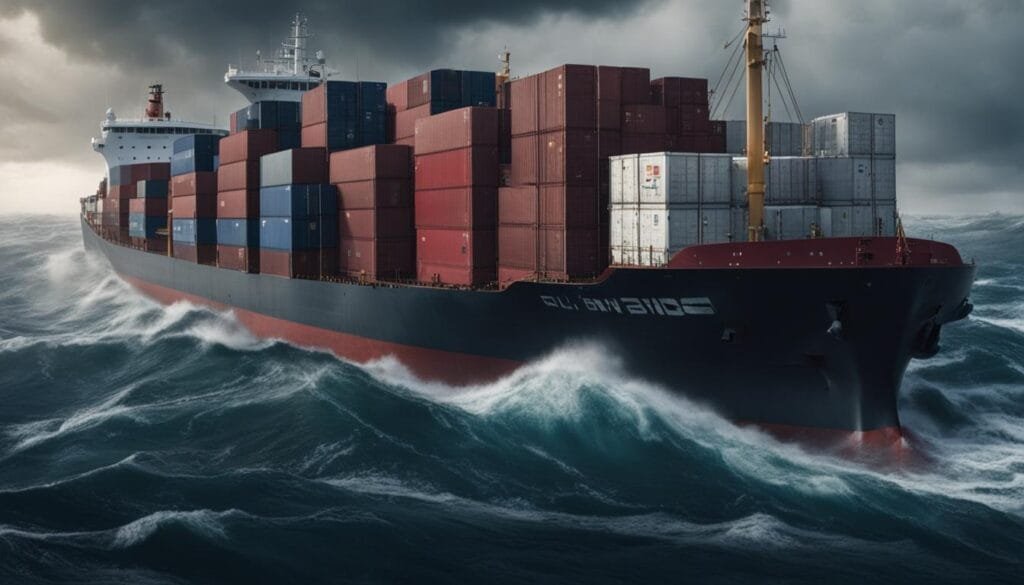
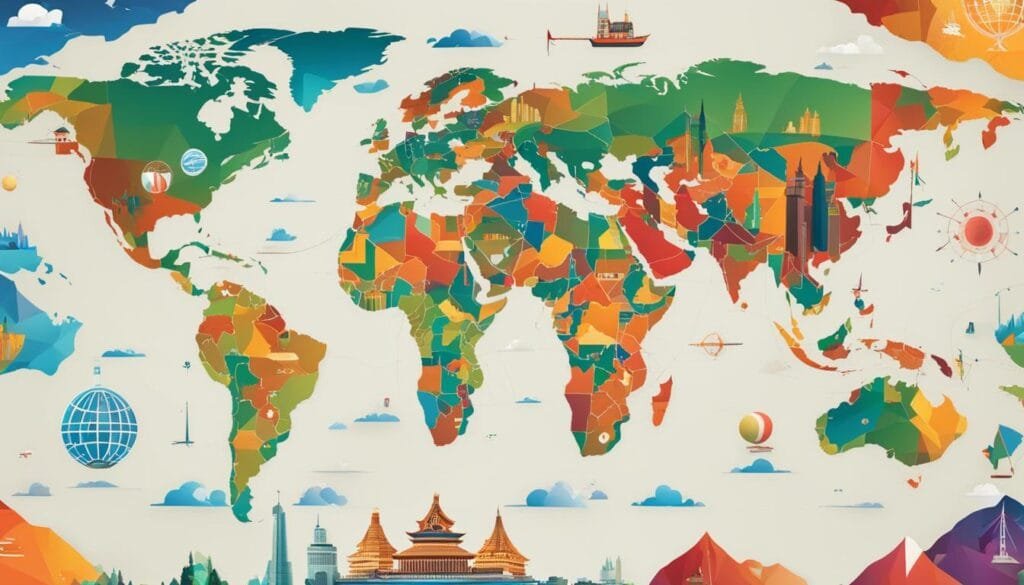
Pingback: Trade Secrets: How International Trade Affects Your Finances! – Straight Fire Money